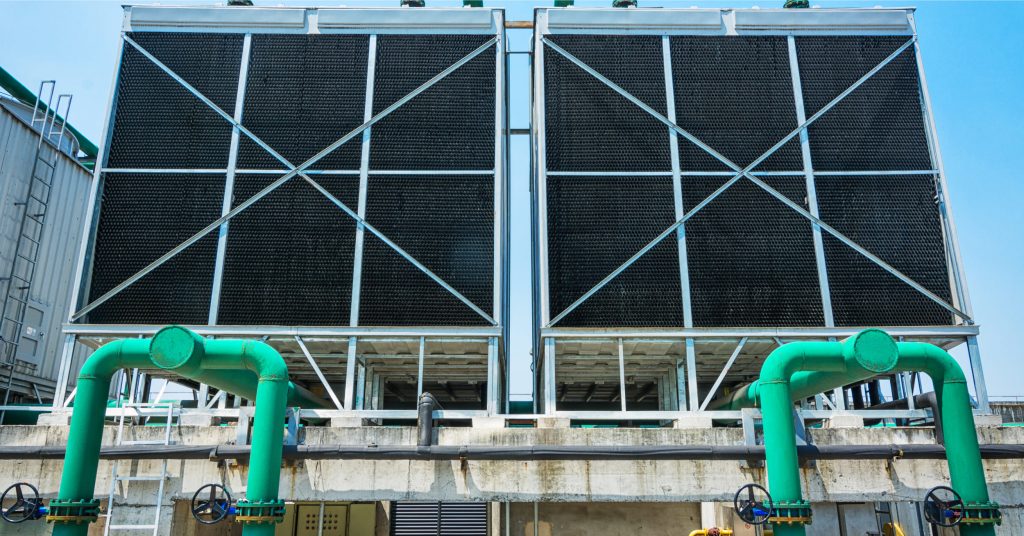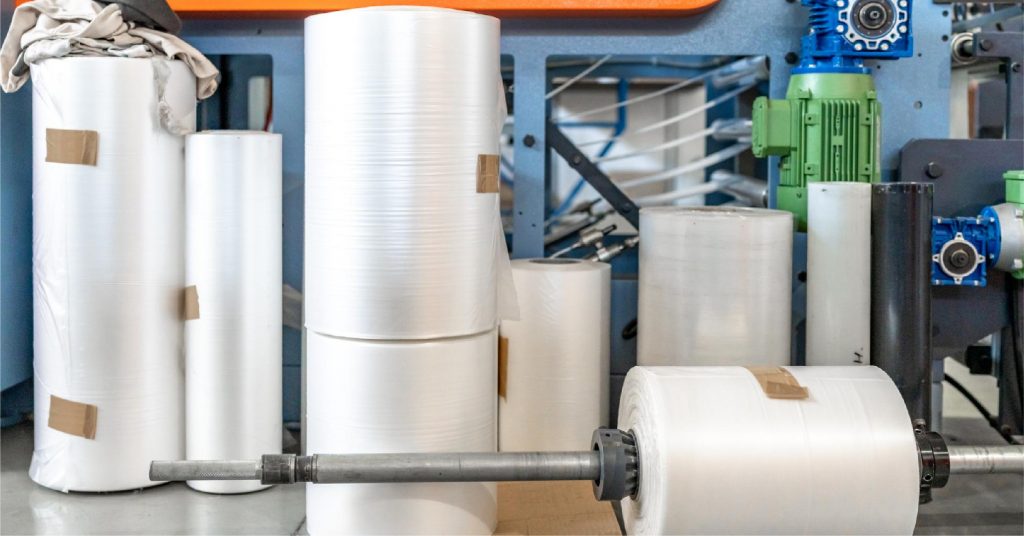Cooling towers play a crucial role in industrial operations and large-scale commercial buildings, especially in regions like South Africa, where power generation, petrochemical plants, and manufacturing are significant economic contributors. Understanding cooling tower operation and efficient water management is vital for optimizing performance, reducing operational costs, and ensuring environmental sustainability.
Table of Contents
ToggleWhat is a Cooling Tower?
A cooling tower is a heat rejection device that expels waste heat from industrial processes or air conditioning systems into the atmosphere by cooling water. This process prevents machinery and equipment from overheating, maintaining operational efficiency and prolonging the lifespan of the infrastructure.
Cooling towers are integral to various industries, offering a reliable solution to dissipate heat generated during operations. In South Africa, where industrial growth and climate factors intersect, understanding how cooling towers work is essential for businesses aiming to enhance energy efficiency and water conservation.
How do Cooling Towers Work?
Cooling towers function by utilizing the principles of heat exchange. The basic process involves circulating warm water from industrial equipment or air conditioning systems through the cooling tower. As the water flows through the tower, it is exposed to air, facilitating the evaporation of a small portion of the water. This evaporation removes heat from the remaining water, effectively lowering its temperature.
There are two main types of cooling towers: wet cooling towers and dry cooling towers. Wet cooling towers are more common, employing the evaporation process to cool water, while dry cooling towers rely on air-cooled heat exchangers. The choice between these types depends on the specific needs of the industry, water availability, and environmental considerations.
In South Africa, water scarcity and environmental regulations have made efficient cooling tower operation a priority. Proper management of cooling towers not only conserves water but also minimizes the environmental impact of industrial activities.
The Importance of Water Management in Cooling Towers
Water management in cooling towers is critical for sustaining performance, reducing costs, and complying with regulatory standards. Cooling towers consume large volumes of water, and inefficient use can lead to significant wastage and increased operational expenses. By implementing effective water management practices, industries can optimize the performance of their cooling towers and extend their operational lifespan.
Key aspects of water management in cooling towers include:
- Water Treatment: Regular water treatment prevents scaling, corrosion, and microbial growth within the cooling tower. This ensures that the tower operates efficiently and reduces the risk of equipment damage.
- Blowdown Control: Blowdown refers to the process of removing a portion of water from the cooling tower to control the concentration of dissolved solids. Effective blowdown control prevents scaling and maintains water quality.
- Recycling and Reuse: Recycling and reusing water within the cooling system reduces the demand for freshwater, promoting sustainability and cost efficiency.
- Monitoring and Maintenance: Regular monitoring and maintenance of cooling towers help detect leaks, blockages, and inefficiencies, ensuring that the system operates at peak performance.
Benefits of Efficient Cooling Tower Operation
Optimizing cooling tower operation offers numerous benefits for industries in South Africa, including:
- Energy Savings: Efficient cooling towers reduce the energy required for cooling processes, lowering overall energy consumption and operational costs.
- Extended Equipment Lifespan: Proper cooling prevents overheating, minimizing wear and tear on industrial equipment and extending its operational life.
- Environmental Sustainability: By conserving water and reducing energy use, industries contribute to environmental sustainability and comply with South Africa’s stringent environmental regulations.
- Operational Reliability: Well-maintained cooling towers ensure consistent performance, preventing costly downtime and production disruptions.
How Ion Exchange Sets the Standard for Specialized Water Treatment Solutions?
Our utility water treatment chemical solutions offer comprehensive and efficient treatment and management for raw water, boiler and cooling water systems, membranes, evaporator systems, and wastewater treatment systems. These solutions significantly enhance the performance of utility water systems by safeguarding metallurgy and valuable assets while promoting environmental protection through the safe and reduced discharge of water.
-
Green Chemistry
Additionally, our product range features innovations using Green Chemistry under the INDION brand, ensuring that our chemicals are not only effective but also safe to use, biodegradable, and made from renewable feedstocks. Our commitment to sustainability is further reflected in our advanced technologies for process biocides, antiscalants, scale inhibitors, coagulants, flocculants, and defoamers, all of which cater to the growing industry demand for safe and eco-friendly products.
-
Cooling Water Treatment Chemicals
ION EXCHANGE offers a comprehensive range of cooling water treatment chemicals designed to address various issues like fouling, bio-fouling, and Microbiologically Induced Corrosion (MIC) caused by suspended solids and microbiological organisms. Their solutions include scale control additives, corrosion inhibitors, dispersants, silica scale inhibitors, and specialized programs for deposit and corrosion control. Additionally, they provide a variety of biocides, including oxidizing and non-oxidizing options, as well as advanced chlorine dioxide generators and automatic dosing systems, ensuring optimal performance and protection for cooling water systems.
Conclusion
Cooling towers are essential for industrial processes and large commercial operations in South Africa. Understanding what a cooling tower is and how a cooling tower works is crucial for optimizing performance and managing water efficiently. As industries continue to grow, the need for sustainable cooling solutions becomes increasingly important.
Connect with Ion Exchange experts today to learn more about innovative cooling tower solutions and how they can benefit your operations.





